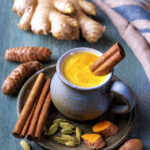
Acorn Coffee vs Sip Herbals: Which Herbal Blend Wins?

If you’d like to see what sets Sip Herbals apart, check out the Sip Herbals Coffee Alternative — a roasted, caffeine-free blend made from chicory, dandelion, and carob.
Quick Summary / Key Takeaways
- Both acorn coffee and Sip Herbals offer caffeine-free alternatives to traditional coffee, but they differ in taste, ingredients, and sourcing.
- Acorn coffee is typically made from roasted acorns and may have a nutty, slightly bitter profile. It’s not always pregnancy-safe.
- Sip Herbals blends chicory, dandelion, and carob to deliver a smooth, gut-friendly experience that mimics coffee more closely.
- Sip Herbals is gluten-free, grain-free, and allergen-conscious, while acorn coffee may pose risks for those with tree nut sensitivities.
- For daily use and wellness support, Sip Herbals offers broader benefits and safety.
Comparison Table: Sip Herbals vs. Acorn Coffee
| Feature | Sip Herbals | Acorn Coffee |
|---|---|---|
| Main Ingredients | Chicory, dandelion, carob | Roasted acorns (sometimes blended with barley or chicory) |
| Caffeine Content | 0 mg | 0 mg |
| Pregnancy-Safe? | Generally yes (with provider approval) | Not recommended due to tannins and limited safety data |
| Gluten-Free | ✅ Yes | ❌ Not always (some blends include barley) |
| Nut-Free | ✅ Yes | ❌ No (acorns are technically tree nuts) |
| Taste Profile | Smooth, slightly sweet, roasted | Earthy, nutty, bitter |
| Availability | Available online in multiple flavors | Less widely available, often local/regional |
| Functional Benefits | Gut support, gentle detox, nourishing | Limited research; tannins may irritate gut |
| Best For | Daily use, gut health, pregnancy | Occasional drinkers seeking novelty |
Ingredient Breakdown: What’s in the Cup?
Sip Herbals
- Chicory root: Roasted for a rich, coffee-like flavor and supports gut health.
- Dandelion root: Traditionally used for liver and kidney support.
- Carob: Naturally sweet, nutrient-dense, caffeine-free.
Acorn Coffee
- Roasted acorns: High in tannins, mildly bitter, contain natural starches and some antinutrients. Preparation methods vary.
Some acorn coffees also include barley, rye, or other grains for body — which may introduce gluten or other allergens.
Nutritional Snapshot
| Nutrient/Property | Sip Herbals (1 serving) | Acorn Coffee (1 serving) |
|---|---|---|
| Caffeine | 0 mg | 0 mg |
| Calories | ~10 | ~15 |
| Gluten-Free | ✅ Yes | ❌ Not guaranteed |
| Nut-Free | ✅ Yes | ❌ No |
| Iron | Trace | Moderate (from acorns) |
| Tannins | Low | High |
Real Talk: Taste & Experience
Sip Herbals is made to be brewed like traditional coffee — in a French press, drip machine, or pour-over. The blend delivers a roasted flavor with a mellow, slightly sweet finish. Customers say it’s easy to drink black or with creamers and foams.
Acorn Coffee is often homemade or sold in smaller batches. Its bitterness and nutty aroma can be an acquired taste. Some blends are astringent or gritty. Tannins can dry out the mouth, and if not properly prepared, acorns can be tough on digestion.
Who Should Avoid Acorn Coffee?
- Pregnant individuals: Due to lack of safety data and tannins, acorn coffee is not recommended.
- People with nut allergies: Acorns are classified as tree nuts.
- Anyone sensitive to tannins: These compounds can cause digestive discomfort or interfere with nutrient absorption.
- Celiac or gluten-sensitive individuals: Acorn coffee blends may contain barley or rye.
Table of Contents
Why Sip Herbals Is a Safer Bet
Sip Herbals was designed with everyday wellness in mind. Unlike acorn coffee, our formula is:
- Third-party tested for safety and purity
- Pregnancy-aware — using only GRAS (Generally Recognized as Safe) ingredients
- Consistent in flavor and experience
- Free of nuts, gluten, grains, and caffeine
Advanced Tips for Switching Off Coffee
- Don’t go cold turkey. Ease off caffeine gradually to avoid withdrawal.
- Brew Sip like your coffee. Use your usual method — French press, drip, pour-over.
- Flavor it up. Add collagen, frothed oat milk, cinnamon, or nutmeg.
- Try an afternoon cup first. Use herbal coffee as a PM replacement before ditching AM coffee.
- Track your energy. Many people report better focus and calmer mornings.
FAQs
Is acorn coffee safe during pregnancy?
Direct Answer: No — it’s not recommended.
Depth: Acorns contain tannins, which can interfere with nutrient absorption. There’s little to no safety data on acorn coffee for pregnant individuals.
Real Results: Many midwives and herbalists suggest avoiding high-tannin herbs during pregnancy.
Takeaway: Better to choose a tested, food-grade alternative.
Does acorn coffee taste like real coffee?
Direct Answer: Not quite — it’s more nutty and bitter.
Depth: It lacks the roasted, rich body of coffee. Some drinkers enjoy it with sweeteners or spices to mask the bitterness.
Real Results: Mixed reviews. Some enjoy it; others don’t finish the bag.
Takeaway: Sip Herbals is more coffee-like in both body and aroma.
Are acorns actually nuts?
Direct Answer: Botanically yes — they’re classified as tree nuts.
Depth: That means acorn coffee may not be safe for people with nut allergies. Even if roasted, some allergenic proteins may remain.
Real Results: Most labels do not warn about nut content — a risk for allergic individuals.
Takeaway: Always ask if you have allergies.
Is Sip Herbals safe during pregnancy?
Direct Answer: Sip uses only food-level, GRAS ingredients — but always check with your provider.
Depth: Chicory, dandelion, and carob are commonly used in food and herbal medicine and are generally well tolerated.
Real Results: Many Sip customers continue using it through pregnancy with OB/midwife approval.
Takeaway: Designed with safety in mind, but individual cases vary.
After comparing both, it’s clear that Sip Herbals offers a smoother, roasted flavor with simple, organic ingredients. Taste it for yourself — the Sip Herbals Coffee Alternative is available in loose leaf or pods
Author Bio
Written by Orleatha Smith, Certified Master Herbalist
Orleatha Smith is a Certified Master Herbalist and co-founder of Sip Herbals, a revolutionary coffee alternative designed to deliver sustainable energy without the crash. With a background in biology and an advanced degree in education, Orleatha has spent more than a decade in the wellness community, helping people explore natural approaches to health. Her expertise has been featured on Shark Tank, First For Women Magazine, The Los Angeles Times, WebMD, and on numerous podcasts and television programs.




